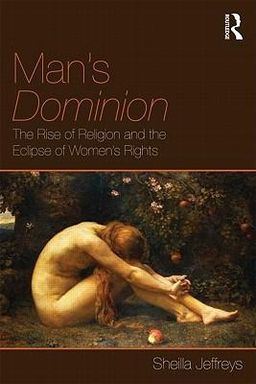About
Sheila Jeffreys, Birleşik Krallık'ta cinsellik tarihi ve politikası incelemeleriyle tanınan lezbiyen feminist, akademisyen ve etkincidir. Avustralya'da bulunan Melbourne Üniversitesi'nde öğretim üyesidir.
Title:
Akademisyen, Yazar
Birth:
13 May 1948
Readers
3 readers read.
2 readers are reading.
5 readers will read.
Quotes
One of the great powers of feminism is that it goes so far in making the experiences and lives of women intelligible. Trying to make sense of one's own feelings, motivations, desires, ambitions,actions and reactions without taking into account the forces which maintain the subordination of women to men is like trying to explain why a marble stops rolling without taking friction into account.
Women may well say makeup empowers them but the interesting question is, what disempowers them about being without their mask? The constraints imposed by sexism and racism and the political structures of male domination are likely to be responsible for women's discomfort about moving into the public world "barefaced".
The pornographizing of fashion photography in its most extreme forms may not have much effect on what women wear since not many will choose to be half-naked in their social or professional lives. However, there are ways in which it has a negative impact on women in general. It popularizes the ``slut'' and prostitute look, very short skirt, boots, piercings for young women. It makes looking as if you are in the sex industry chic and thereby helps sex industrialists by normalizing their business of the international traffic in women. The sex industry sells clothes and the fashion industry sells prostitution and pornography.
Sayfa 75
The "difference" between men and women is created in and by culture but is regarded as natural and biological. The huge difficulty that so many women and men have in seeing femininity and masculinity as socially constructed rather than natural, attests to the strength and force of culture. The French feminist theorist Colette Guillaumin explains the difficulty with this cultural idea that women are "different" (Guillaumin, 1996). If women are "different" then there must be something they are different from. That something turns out to be "men" who are not themselves "different" from anything, they just are. It is only women who are understood to be different, "Men do not differ from anything . . . We are different - it is a fundamental characteristic . . . We succeed in the grammatical and logical feat of being different all by ourselves. Our nature is difference" (Guillaumin, 1996, p. 95). Women are, of course, understood to be "different" from men in many ways, "delicate, pretty, intuitive, unreasonable, maternal, non-muscular, lacking an organizing character", as Guillaumin puts it (1996, p. 95). But most importantly women are understood to be different from men in being both potentially "beautiful" and in being interested in beauty and enthusiastic to put in huge amounts of time, money, pain and emotional distress to be "beautiful". This is assumed in western culture to be "natural" to women and a most persuasive sign of women's difference from men.
Graham offers an explanation for why many women believe that their "femininity" is biological and inherent and why, "we believe that we would choose to wear makeup, curl our hair, and wear high heels even if men didn't find women who dressed this way more attractive" (1994, p. 197). Women believe this, she says, because "to believe differently" would require the acknowledgement that our behaviour is controlled by "external variables"; that is, men's use of force and its threat. Recognizing this would mean that women would have to "acknowledge our terror" (p. 197). She says that "It is scary for women to contemplate no longer being feminine" (p. 199) and concludes that examining what it is that is scary about giving up femininity may lead to the decision to give it up altogether.
Updates
Henüz kayıt yok
Comments and Reviews
Beauty and Misogyny: Harmful Cultural Practices in the WestSheila Jeffreys · Routledge · 20053 okunma






